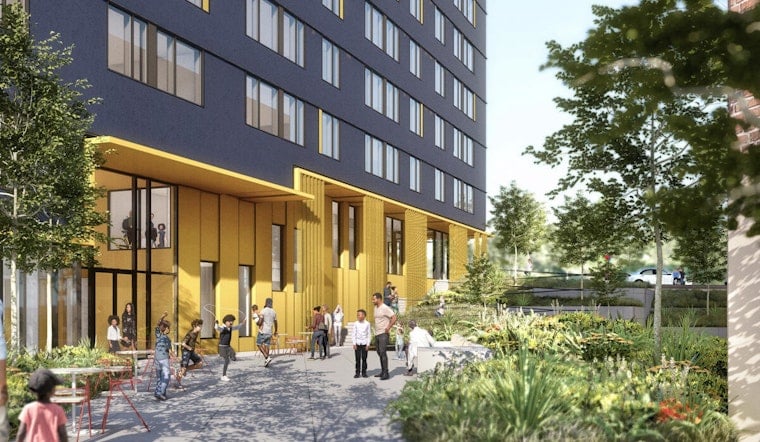PORTLAND, Ore. – The historic Albina neighborhood in North Portland has taken a symbolic step toward reconciliation and renewal with the grand opening of Albina One, a new affordable housing development designed to bring back families displaced by decades of urban renewal.
The project, more than ten years in the making, opened its doors on Saturday with a block party celebrating both the future of the community and a reckoning with its painful past.
A Legacy of Displacement
The Albina community, once home to the majority of Portland’s Black residents, suffered heavily during the mid-20th century as city-led urban renewal projects demolished homes and businesses under eminent domain. These projects, framed as efforts to serve the public good, disproportionately displaced Black families and fractured a thriving neighborhood.
Also Read
That painful history remains deeply personal for many, including Sharon Gary-Smith, a philanthropist and board member of Albina Vision Trust. Speaking at the opening, she reflected on the bittersweet emotions of witnessing the new development so close to where her family once lived.
“We’re sitting less than a thousand feet from my family’s home,” Gary-Smith told KATU. “So, I have mixed feelings about how incredible this move is.”
Remembering the Losses
The ceremony was not just about housing—it was also about acknowledging past injustices. Lizz Fouther-Branch, 73, recalled being uprooted as a child when the Portland Development Commission seized her family’s home in the 1950s. Their property was demolished to make way for what is now Legacy Emanuel Medical Center.
“I sat with my parents and understood they are pushing us out, they are taking the land,” Gary-Smith added in a separate interview with KGW, describing how racial inequities shaped the use of eminent domain.
Stories like Fouther-Branch’s echo throughout Albina, where displacement and broken promises left a lasting scar.
Albina One: A Step Toward Equity
Albina One aims to provide part of the healing. The 94-unit development gives housing priority to families directly impacted by displacement or their descendants, making it one of the first projects in Portland to explicitly address historical harm in this way.
The initiative reflects a broader mission to restore not just housing, but also community identity. The project’s supporters view it as a model for how cities can reconcile with the past while building a more equitable future.
A Symbol of Renewal
Though Albina One cannot fully reverse decades of loss, residents and advocates see it as a meaningful stride toward justice. The building now stands as both a home for returning families and a symbol of resilience for a community that endured systematic displacement.
For many in attendance, the opening of Albina One represented more than a ribbon-cutting—it was a step toward reclaiming a legacy, honoring past generations, and ensuring that Albina’s story continues with renewed strength.












